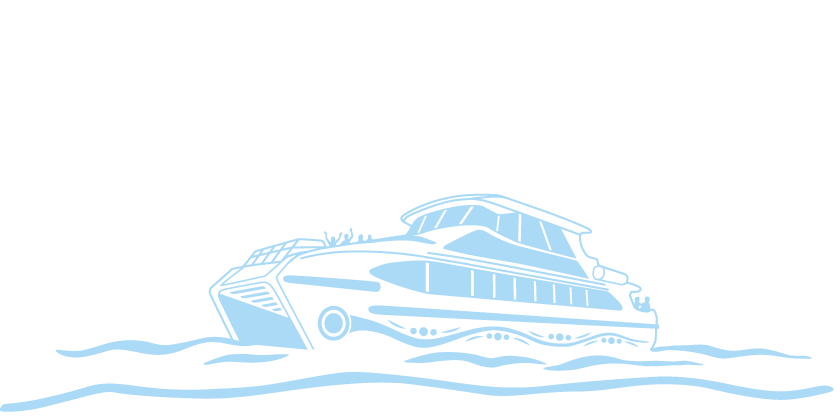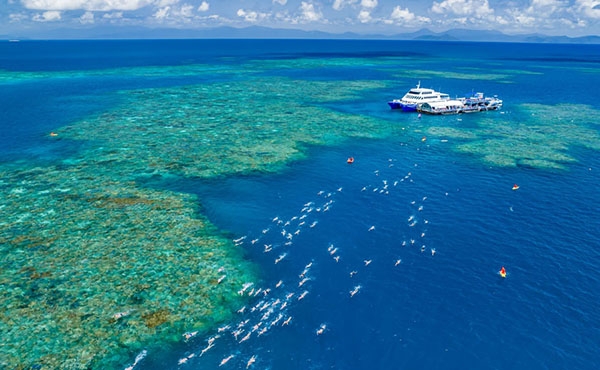Commercial marine tourism activities can pose threats to ecosystem and heritage values, mostly at a local scale. The most common of these include: incompatible uses, where tourism use may displace or affect another user group, such as Traditional Owners or recreational users; groundings of vessels; and, in some locations, marine debris and discharge of sewage.
Direct impacts from commercial marine tourism can include, for example, localised damage to reef structure or coral by snorkelling tourists and the footprint left by concrete mooring blocks associated with tourism pontoons. Site-specific tourism operations mitigate impacts through guided snorkel tours, trails and resting stations that reduce contact with corals. Operators funded under the Tourism Reef Protection Initiative are required to complete site stewardship plans detailing the actions they implement to reduce impacts.1179 Policies, plans and educational material for permit holders adopted by Reef managers continue to provide guidance to tourism operators about best-practice and preferred mitigation measures.1200,1201,1202,1203
Tourism industry emissions (both from air travel and vessel operations) contribute to broader greenhouse gas emissions, but quantitative data are lacking. At a global scale, disruptions to international travel due to the pandemic provided an opportunity to analyse the extent of any associated reductions in environmental impacts of travel and tourism.1197,1204,1205
Physical damage to reefs and shoals can be caused by vessel groundings. Since 2019, the number of groundings of commercial tourism vessels have fluctuated, ranging from 3 to 11 groundings in a year (Section 5.5.3, Figure 5.16). Sewage discharge from vessels (both commercial and recreational) can increase nutrients in the water, reduce water quality and damage habitats. There are few land-based sewage pump-out facilities adjacent to the Region, with only five fixed onshore pump out facilities registered.1206 In 2023, an amendment was made to Annex 1 of the London Protocol to remove disposal of sewage sludge as a permittable activity.1207 As such, no new permissions have been, or can be, granted for the dumping of sewage sludge. Existing permissions remain until expiry, with no subsequent granting of permission possible.


